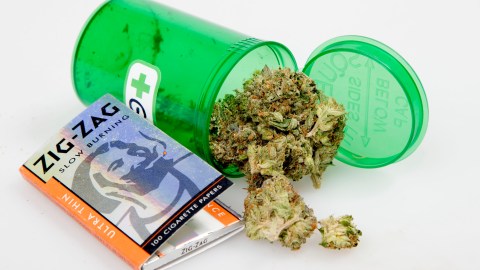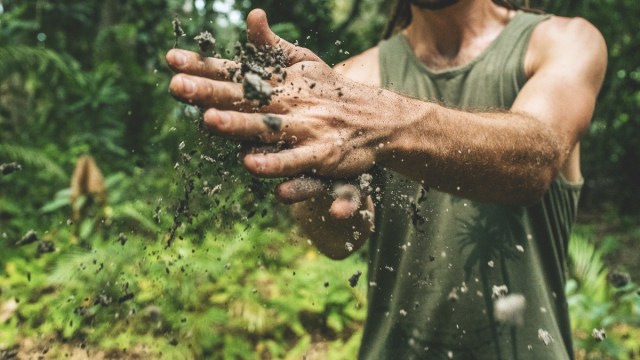Colorado passes $1 billion in marijuana revenue since 2014

Photo credit: Carlos Osorio / Getty contributor
- Colorado’s Department of Revenue announced last week that the recreational marijuana industry has generated more than $1 billion in revenues from a total of $6.56 billion in sales.
- Legalization remains a controversial issue in Colorado, where only 55% of residents voted to legalize recreational marijuana in 2012.
- Ten U.S. states and the District of Columbia have legalized recreational marijuana, with Illinois set to legalize it in 2020.
Colorado has earned more than $1 billion in revenue since legalizing recreational marijuana in 2014, the state’s Department of Revenue announced last week. That revenue — which comes from taxes, licenses, and fees — helps fund public education programs and health services throughout the state.
“[The marijuana] industry is helping grow our economy by creating jobs and generating valuable revenue that is going towards preventing youth consumption, protecting public health and safety and investing in public school construction,” Governor Jared Polis said in a statement.
Colorado currently has nearly 3,000 licensed marijuana businesses, which have sold a total of $6.56 billion in marijuana products since January 2014. The state’s marijuana laws are still evolving. Last month, Polis signed two bills that legalized cannabis delivery services and social-use areas, which will be “kind of like cigar lounges, which also help get the smell out of neighborhoods,” the governor wrote on Facebook.
“Today’s report continues to show that Colorado’s cannabis industry is thriving, but we can’t rest on our laurels,” the governor said on Wednesday. “We can and we must do better in the face of increased national competition. We want Colorado to be the best state for investment, innovation, and development for this growing economic sector.”
Legalization remains controversial
Although Colorado’s Amendment 64 is clearly a fiscal success, not all residents like legalization. After all, 45 percent of Colorado voters voted against the amendment in 2012, and today about 200 municipalities have outlawed pot retail shops, even though possession remains legal.
One main concern is kids using marijuana. Although studies suggest usage rates among Colorado teenagers haven’t significantly increased since legalization, some experts have expressed concern about how marijuana is affecting teenagers’ mental health.
“Horrible things are happening to kids,” Libby Stuyt, a psychiatrist who treats teens in southwestern Colorado and has studied the health impacts of high-potency marijuana, told The Washington Post, which reported that visits to Children’s Hospital Colorado facilities for paranoia, psychosis, and other “acute cannabis-related symptoms” jumped from 161 in 2005 to 777 in 2015, in the Denver area.
“I see increased problems with psychosis, with addiction, with suicide, with depression and anxiety,” Stuyt said.
What explains this (potential) increase in mental health problems among young cannabis consumers? One explanation is potency. The legal marijuana products available today are, on average, much stronger than, say, the pot Americans smoked in the 1970s. What’s more, people are consuming highly potent pot in different ways; one popular example is smoking hash oil from an oil rig.
Studies have established that consuming cannabis can damage a young person’s brain. But that doesn’t necessarily mean that fighting legalization is what’s going to best protect kids.
“[Colorado’s legal pot industry is] in many ways stamping out a black market that doesn’t care whether they sell to kids,” Colorado state Rep. Jonathan Singer, a Democrat from the community of Longmont, said in an interview.
Still, some argue that Americans need to fully realize just how potent today’s marijuana is, and the psychological damage it might be inflicting upon us.
“We are holding on to a construct of marijuana which today is antiquated,” Ben Cort, a drug-treatment consultant, recently told students at Olathe Middle and High School, as reported by The Washington Post. “Ten years from now, there’s going to be a reckoning.”
Ten U.S. states and the District of Columbia have legalized recreational marijuana, with Illinois set to legalize it in 2020.





